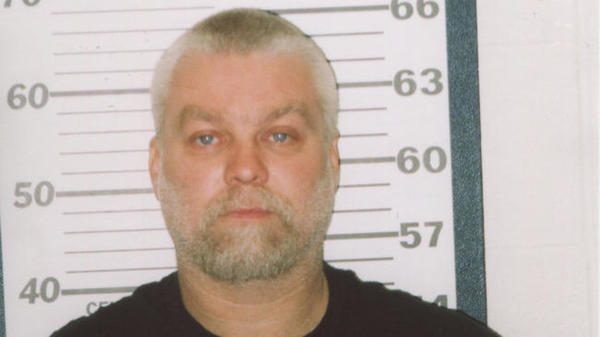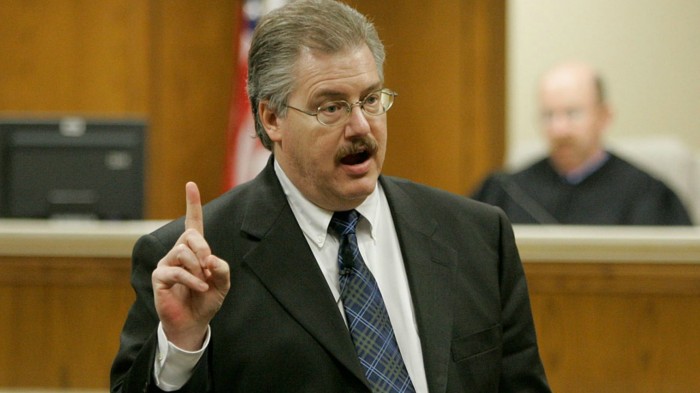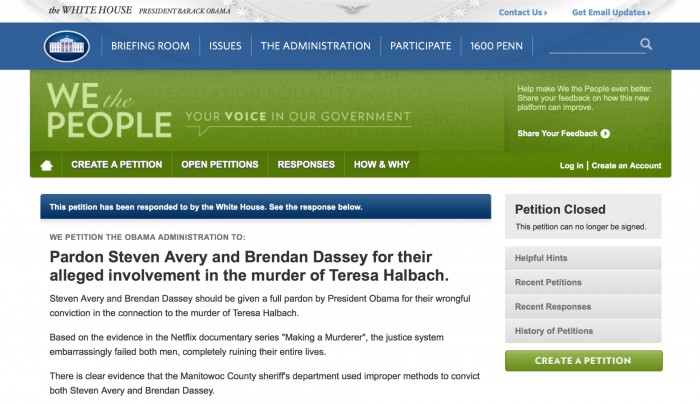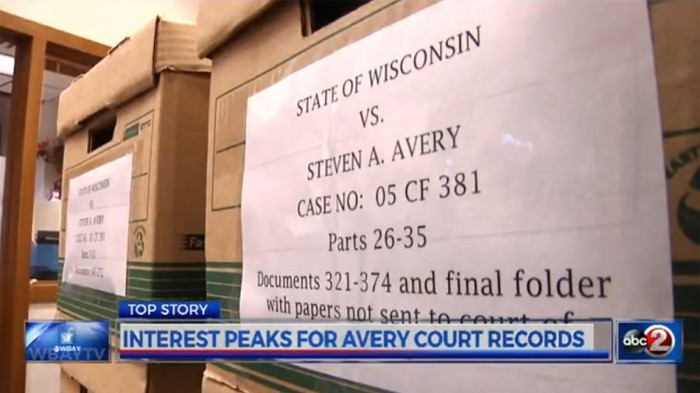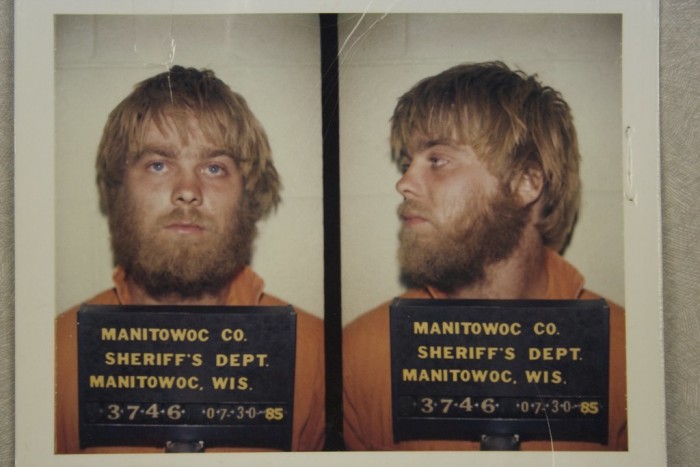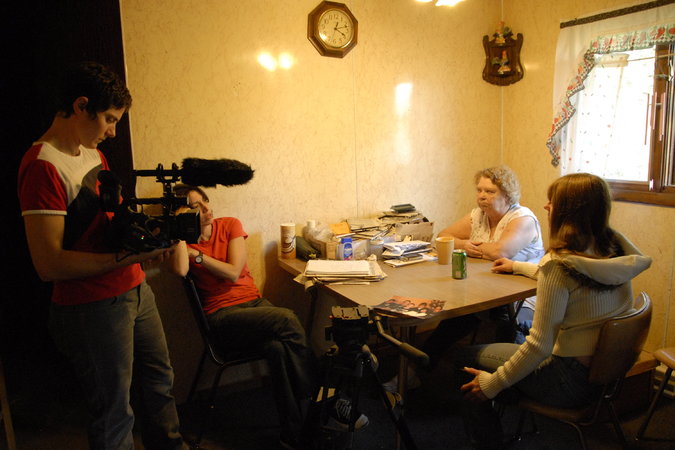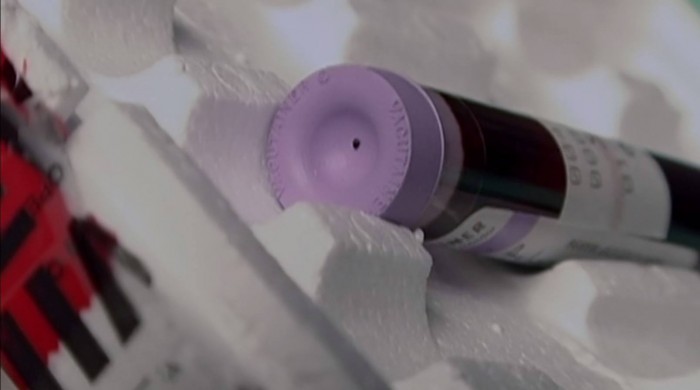Making A Murderer Updates: Who Steven Avery Says Did It, White House Responds And Much More
A lot of us have been sucked into Netflix's original docu-series Making A Murderer. If you haven't yet seen it, the weekend is coming up fast and its an easy binge-watch (you won't be able to stop). And when you're done with the show, you'll want to find out everything you can about the case and people at the heart of the show.
You've heard our review on the /Filmcast, and I've previously done a round-up of theories, shocking evidence, information on how the show was produced, hints that we might be getting a sequel at some point, and much more. And today I attempt to bring you an in-depth round-up of all the Making A Murder updates you need to know.
Spoilers for the show follow.
Find out who Steven Avery believes committed the murder, Former Wisconsin prosecutor Ken Kratz demands Netflix add a disclaimer before the episodes, will they? The Obama Administration is forced to respond publicly, but will it have any effect? You can now watch Brendan Dassey's four hour-long confession online. Will Steven be getting the best post conviction lawyer in the country? The filmmakers claim a juror in the trial who believed Avery was innocent feared for their life. And we look at some of the other unanswered questions. So jump in now.
Find Out Who Steven Avery Believes Killed Teresa Halbach
Who does Steven Avery believe is responsible for murdering photographer Teresa Halbach? His brothers Earl and Charles Avery.
According to documents obtained by TMZ, Steven Avery claims that both of his brothers have a history of sexually assaulting women and that his brother Charles has a history of aggression toward women who visited the family's salvage yard, and that Charles would pursue women to their homes and seek intimate contact to the extent that they would fear for their safety. Apparently one woman even went to the police claiming that Charles sent her inappropriate gifts, called her over and over again, and showed up at her doorstep. Most interesting, all of the women were allegedly harassed by Charles within a month of the time Teresa Halbach went missing.
According to Steven, Charles had the motive to frame him, which includes jealousy over his (at the time possible) multi-million dollar reparation settlement, and its very possible Charles did not want him to take over the family business. Of course, Steven was unable to point fingers during the trial, and Steven's theories were not presented in the television series.
Netflix Chief Rejects ‘Making a Murderer’ Prosecutor’s Rebuttal Demand
Former Wisconsin prosecutor Ken Kratz demanded that Netflix should "either provide an opportunity for rebuttal, or alert the viewers that this series was produced by and for the defense of Steven Avery." Chief Content Officer Ted Sarandos has dismissed the demand, telling the Wrap:
"I don't think documentaries are unbiased, they do take a position," Sarandos said. "This is the filmmakers' position, and they did a great job laying out the facts."
While I certainly agree with this statement, and believe Netflix should not have to put such a statement before programing like this, I feel far too many viewers won't even question the story or consider there is evidence that was not presented to further the show's narrative.
Obama Administation Will Be Forced To Issue Statement
In our previous piece, we mentioned that a couple petitions had popped up to free Steven Avery and Brendan Dassey. The White House petition has reached the "100,000 signatures in 30 or fewer days" threshold with 115,000 coming in by day 16. This means that the Obama administration had to issue an official response.
The bad news however is that White House petitions like this one will not help in a case like this, because President Obama only has the authority to pardon people convicted of federal crimes. Avery and Dassey are in prison on state murder charges which means the only person who can pardon them is Wisconsin Gov. Scott Walker (who appears to have no desire to do so).
Here is the response from the White House:
To best respond to your petition, we should go over what exactly presidential pardoning power entails.The U.S. Constitution grants the power of clemency to the President:
"The President ... shall have Power to Grant Reprieves and Pardons for Offenses against the United States."
This clemency authority empowers the President to exercise leniency towards persons who have committed federal crimes. Under the Constitution, only federal criminal convictions, such as those adjudicated in the United States District Courts, may be pardoned by the President. In addition, the President's pardon power extends to convictions adjudicated in the Superior Court of the District of Columbia and military court-martial proceedings. However, the President cannot pardon a state criminal offense.Since Steven Avery and Brendan Dassey are both state prisoners, the President cannot pardon them. A pardon in this case would need to be issued at the state level by the appropriate authorities.While this case is out of the Administration's purview, President Obama is committed to restoring the sense of fairness at the heart of our justice system. That's why he has granted 184 commutations total – more than the last five presidents combined — and has issued 66 pardons over his time in office.  This Administration has taken a number of important actions to reduce the federal prison population in keeping with the President's continuing efforts to enhance the fairness and effectiveness of the criminal justice system at all phases and to better address the vicious cycle of poverty, criminality and incarceration that traps too many Americans and weakens too many communities. These include:
This Administration has taken a number of important actions to reduce the federal prison population in keeping with the President's continuing efforts to enhance the fairness and effectiveness of the criminal justice system at all phases and to better address the vicious cycle of poverty, criminality and incarceration that traps too many Americans and weakens too many communities. These include:
In 2014, President Obama also issued an Executive Order creating a Task Force on 21st Century Policing that produced a concrete blueprint for cities and towns seeking to put in place new strategies to build trust between law enforcement and the communities they serve while enhancing public safety. (The Task Force's Final Report is available here.) And he has met with Americans across the country who are working to improve the criminal justice system, from law enforcement officials working to lower crime and incarceration rates, to former prisoners who are earning their second chance. Last summer, he became the first sitting president to visit a federal prison. And he continues to work with Congress to pass meaningful criminal justice reform that makes the system more cost-effective, fairer, and smarter, while enhancing the ability of law enforcement to keep our communities safe.Thanks again for raising your voices. We hope you'll continue to participate on the platform.
Watch Brendan Dassey's Four Hour-Long Confession
One thing that is for sure, the filmmakers were able to weave a very compelling narrative out of what otherwise could have been a boring court case (most are if you sit through it all). So I'm not sure why you'd want to watch Brendan Dassey's entire four-hour interrogation where he confesses, but the video is now on YouTube for you to enjoy.
County Clerk Overwhelmed With Records Requests
In our last update, we told you that many people at home have been doing their own sleuthing trying to put the puzzle pieces together. Also many of the news networks have jumped to cover this 2007 case. Manitowoc County Courthouse in Wisconsin has been overwhelmed with record requests since the airing of the series on Netflix:
"We are getting a lot of phone calls and emails," Lynn Zigmunt, Clerk of Circuit Court for Manitowoc County, told Mashable. "The requests are coming from a variety of sources..... local news networks, even Milwaukee and Madison, but also on a national level from places like CNN (NY), People Magazine, NBC Universal (CA), InTouch/Bauer Publishing (NJ), Good Morning America, even someone from Australia. I'm not sure if they were affiliated with any news organization or just someone from the general public."
They've gotten so many requests that they now have someone working exclusively on filling requests for just the Avery case. And before you make your own request, know it can be very costly: Manitowoc County charges $1.25 a page — "the statutory copy rate," which translates into an estimated $6,000 for the entire batch.
Steven Avery May Get ‘Best Post-Conviction Lawyer in the Country'
Steven Avery may be getting another lawyer. Sandra Greenman, Avery's current girlfriend, said on Facebook that "may have a lawyer-best post conviction lawyer in the country! Pray it all works out!!" And while the Wisconsin Innocence Project initially declined to take the Halbach murder case, The Wrap reports theyare now in touch with Avery's trial lawyers and could potentially take on the case in the future.
Filmmakers Claim That A Juror Feared For Their Safety During The Trial
Making A Murderer filmmakers Laura Ricciardi and Moira Demos say that a juror from the trial of Steven Avery who believed Avery was framed told them that they "feared for their personal safety" during the trial. According to the filmmakers, the juror believed Avery "was framed by law enforcement and that he deserves a new trial, and if he receives a new trial, in their opinion it should take place far away from Wisconsin." Also that the juror claimed that they did not hold out for a mistrial because they "feared for their personal safety."
"The juror contacted us directly...and went on to describe the jurors ultimately trading votes in the jury room and explicitly discussing, 'If you vote guilty on this count, I will vote not guilty on this count,'" Ricciardi said.
10 Questions We Still Have
You have questions, I have questions, and RollingStone still has questions. The magazine has done a good job rounding up ten questions and possible answers. Here are the highlights:
Who is the international recording artist who was released from the jury? Richard Mahler, of a local band called the Rick Raybine Band, was dismissed from the jury for a family emergency after he sat in deliberations for four hours. Mahler claims that two fellow jurors were related to officials in Manitowoc County.Is it common for defendants to be barred from arguing that someone else did it? Wisconsin has a third-party liability law that prevents a defendant from pointing the finger at somebody else without giving the court 30 days notice prior to trial, and having good reason to believe the third party had "motive, opportunity, and a direct connection to the crime."
Other questions:

